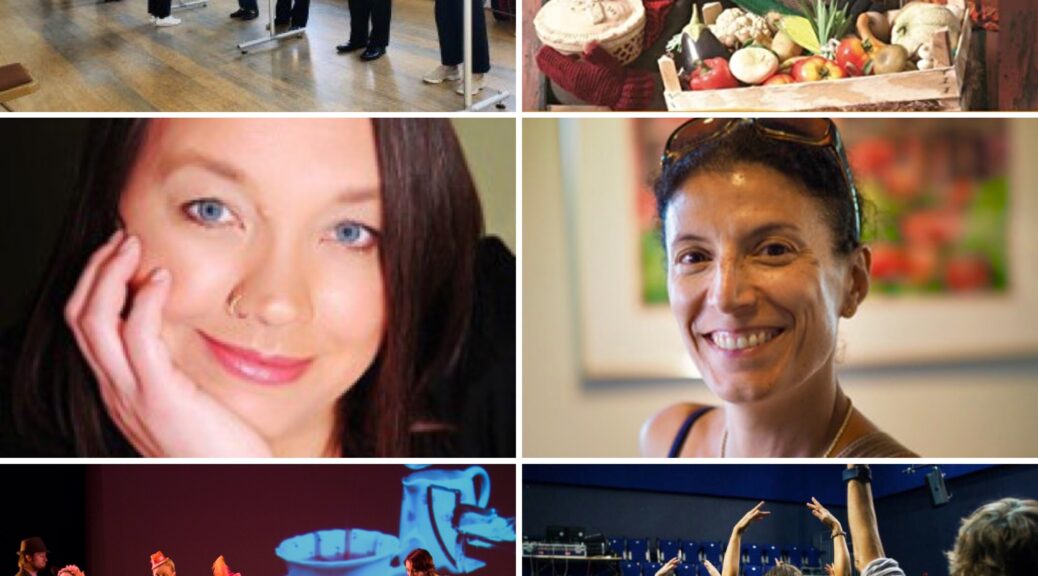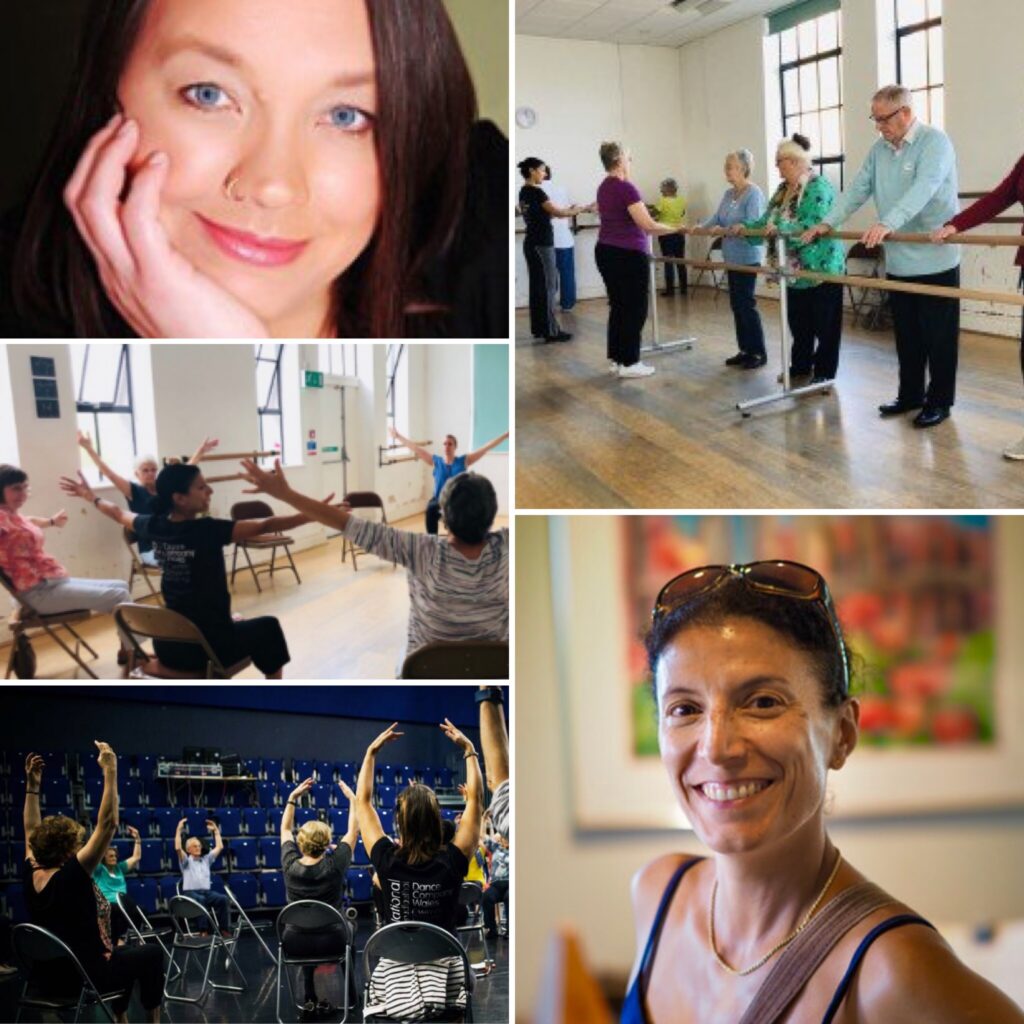
In this interview the Director of Get the Chance, Guy O’Donnell chats to Wales based Dancer Yvette Halfhide and Musician Helen Woods. They jointly deliver the English National Ballet/National Dance Company Wales, Dance for Parkinson’s programme. ENB’s Dance for Parkinson’s programme has been running since 2008. NDCWales is an affiliated hub of ENB’s programme.
Hi Yvette and Helen, great to meet you both can you give our readers some background information on yourself please?
Yvette: Hi everyone, My name is Yvette Halfhide and I live with my family near Bridgend in South Wales. I graduated (many years ago now!) from Central School of Ballet and have been a dancer, choreographer, teacher, rehearsal director, creative movement session leader, as well as other jobs connected to dance and the arts. I am currently associate dance artist for the Dance for Parkinson’s Programme initially set up by English National Ballet and run, in partnership with National Dance Company Wales in Cardiff.
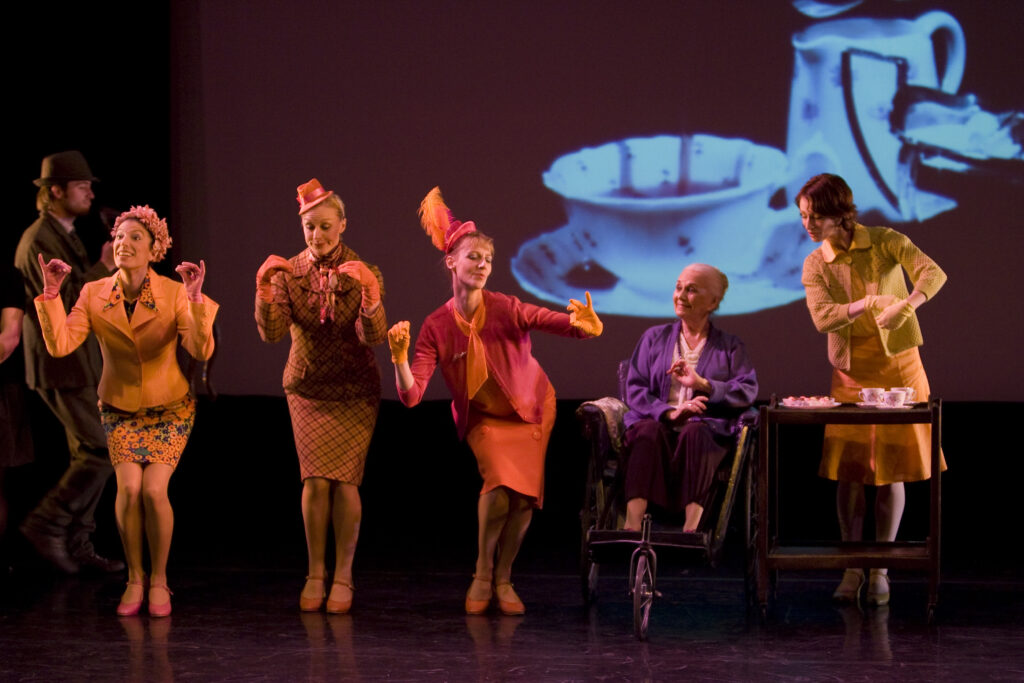
Helen: Hey all, My name is Helen Woods and I moved to Cardiff in 1997 – so I’ve been in Wales for nearly half my life…..nearly. I studied at Dartington College of Arts graduating with a degree in Music and Visual Performance. I work as a freelance composer and musician and have been lucky enough to have worked on a huge variety of projects including Street theatre with a Brazilian dancer, the Tiddly Proms (a show for under 5s that I write the music for and perform as Cherry Pie)
Community musicals, 2 operas for children and in 2013 I received a Creative Wales award to work on my own music writing a flute and piano sonata and a suite of pieces about some of my ancestors. I am currently associate musician for the Dance for Parkinson’s Programme and have the constant pleasure of working with Yvette.
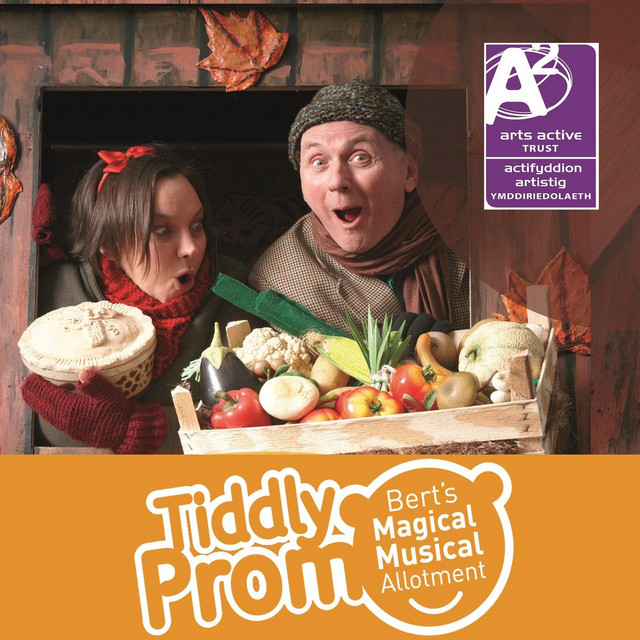
What got you interested in the arts?
Yvette: Both my parents were keen on the arts in their own way. My mother loves all types of dance, musical theatre and theatre, and my father really enjoyed his opera and classical music, so I was lucky to be introduced at a young age to those forms.
Helen: Like Yvette, my parents gave me every encouragement to explore music and dance as a child. When I was four, my older sister was learning the recorder at school and I wanted to learn so my dad bought us a book and a recorder so that we would learn together. He used to leave for work quite early in the morning so we’d always start before the others were up, I loved that time with my Dad. My mum had always wanted to learn the piano but money had not allowed so she was incredibly supportive.
You have been delivering English National Ballets/National Dance Company Wales, Dance For Parkinson’s class since 2015. Dancing has been shown to support people with Parkinson’s to develop confidence and strength, whilst temporarily relieving some participants of these symptoms in everyday life. You have a dance and musical background; how do you use your artistic skills and background when delivering class?
Yvette: I think that as someone who delivers such an expressive art form, it is important for the participants to see that expression when you deliver, so you could say that you are performing as you teach. If you can convey how much you enjoy dancing (and a particularly wonderful experience when with live music, which is at the heart of the programme) then hopefully that enthusiasm is transferred onto those people in your class.
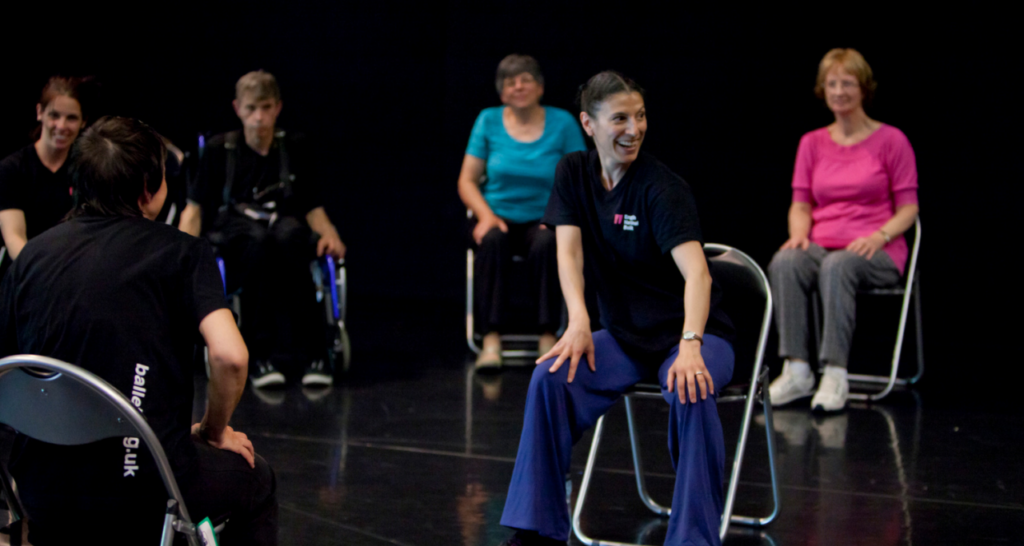
If someone living with Parkinson’s was interested in attending but didn’t think of him or herself as a dancer or singer would they be able to join?
Yvette: Absolutely. Speaking from a dancer’s perspective I truly believe that if you can move, you can dance. A simple gesture can become an exquisite piece of dance if done with intention.
Helen: From a music perspective – we sing because we love to sing, not to be a choir – we sing for ourselves.
Due to Covid-19 you had to cancel physical class delivery and move onto dancing on the Zoom platform. How did you approach this and how have your members found this change?
It is a very different way of delivering a dance class. The challenges of using new technology can be a barrier to some people wanting to move online, but we have found that those that have, have embraced it enthusiastically. NDCWales also work with Digital Communities Wales to support our members to get online and active.

We have found that when working through exercises, adding verbal instructions or imagery in the form of lyrics onto the music helps participants remember the movements. I would say that most participants would prefer to be in the studio dancing together but a major advantage of moving online is that we are able to reach individuals literally anyywhere in the world. Since starting Zoom sessions, as well as our regular participants from Wales, we have had people from England also join us.
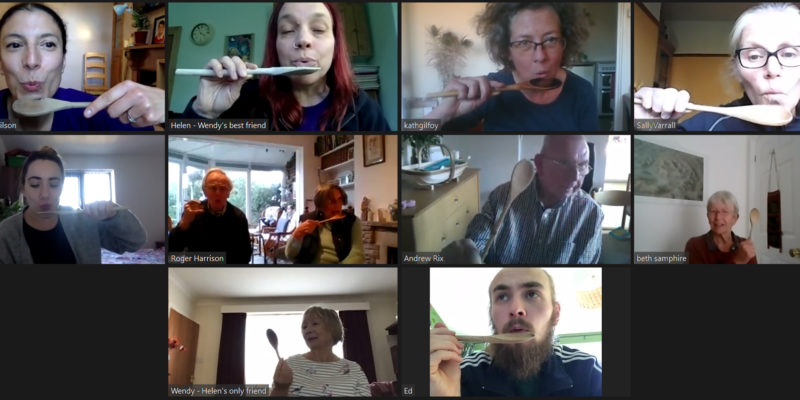
This coming March you are piloting two new Zoom classes in North Wales with Coleg Cambria in Wrexham and Pontio in Bangor. What might these new classes consist of?
The sessions in North Wales will still follow the regular Dance for Parkinson’s format that works through specific exercises focusing on the different symptoms of Parkinson’s. Each term, we focus on a piece of work that is in either English National Ballet or National Dance Company Wales’ current repertoire and for this part of the term we will be exploring – a fun, Cuban-inspired homage to the black and white silent movie era.
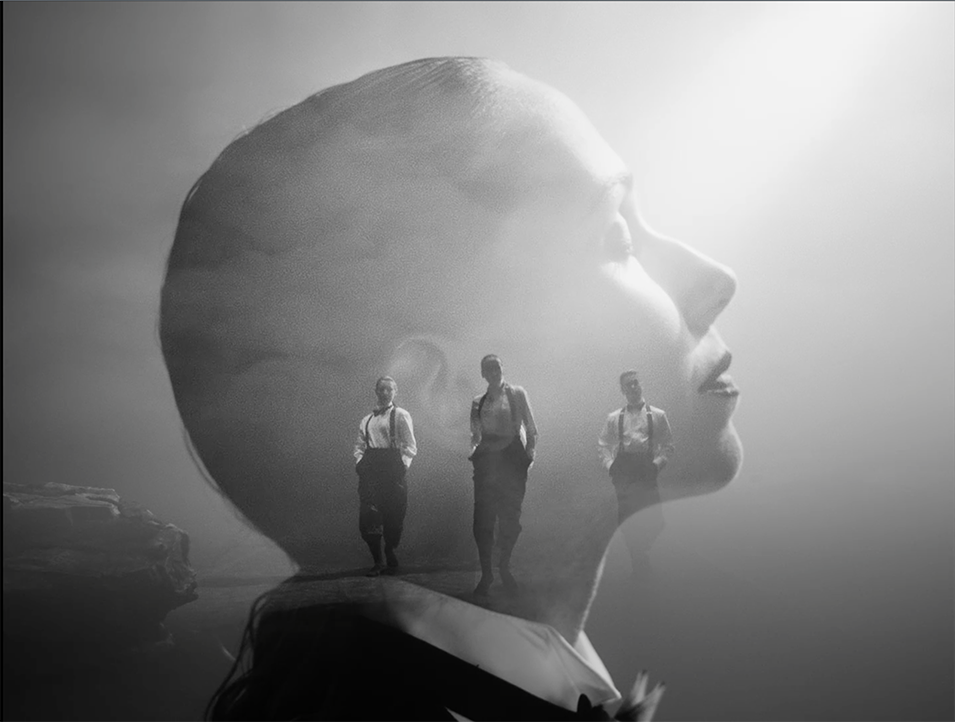
What do you personally see as being the key to the delivery of a project such as this?
I think offering a fun, high-quality dance session that motivates those attending to continue to be as mobile as possible whilst developing an appreciation for the arts is key to the delivery of the project.
How would you like the project to develop?
According to the Parkinson’s UK website there are around 145,000 people living with Parkinson’s in the UK and that correlates to about 7,600 of those individuals living in Wales. We are only reaching a very small number. It would be fantastic if we were able to set up more hubs across all of Wales so that people living Parkinson’s have access to a Dance for Parkinson’s Class near to where they live. Admittedly, not every person living with Parkinson’s may want to attend a dance class, but it would be lovely to be able to offer every person living with the condition that option.
If you were able to fund an area of the arts what would this be and why?
There are so many abandoned buildings around the UK that have the potential to be turned into these wonderful creative and artistic centres. Whether that be a site-specific installation, a live performance or a place for artists from all genres to come together to exchange ideas. There is such a wealth of history and beauty in many of these places – it would be wonderful to bring to them a new lease of life.
What excites you about the arts at the moment?
It has been a really challenging period for the arts at the moment, but I would say what inspires me perhaps more than excites me is the resilience of artists. Somehow, in spite of the theatres closing, performances postponed indefinitely, projects on hold, artists from all genres are still finding ways to be creative, to use this time to reflect on their work and find ways to express themselves.
What was the last really great thing that you experienced that you would like to share with our readers?
As part of our training delivering the Dance for Parkinson’s sessions, English National Ballet invited all of the associate dance artists and musicians to come together (online) to explore the repertoire, chat with some of the creative team, exchange ideas and have time to reflect on our practice. It was just before Christmas and after nine months of lockdown I felt tired and drained but after the training, I was re-invigorated and had a renewed sense of purpose. Just coming together with other artists, I was reminded of that support; and it reiterated to me how important it is to be able to have the opportunity to connect and engage with like-minded people.
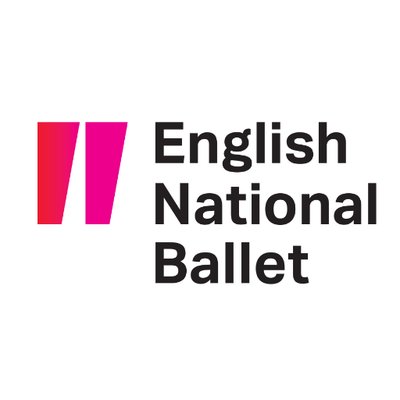
Thanks for your time

